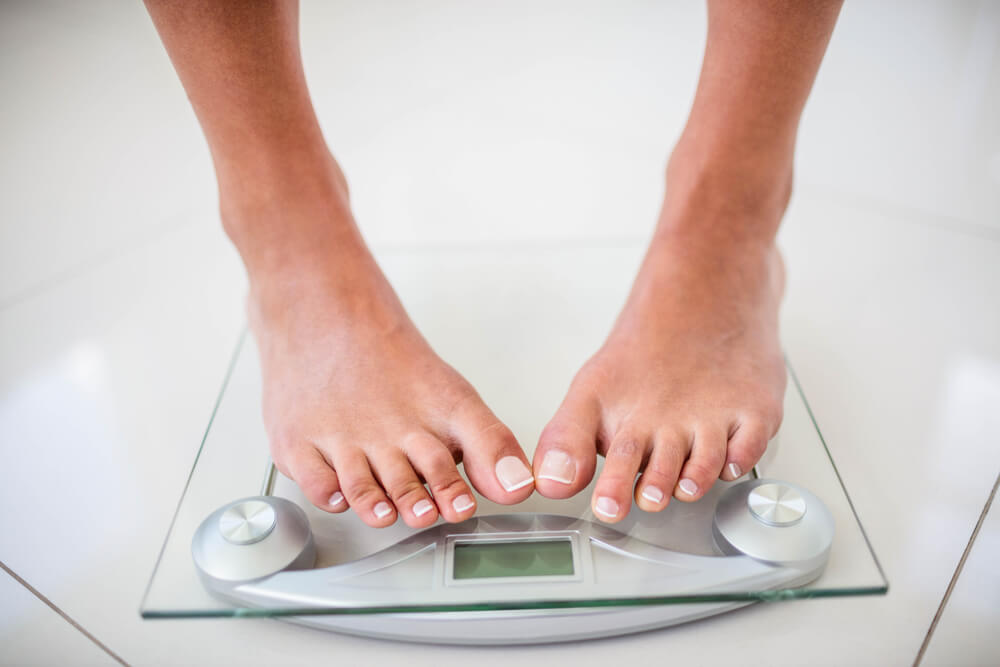Dr. Nina Savelle-Rocklin
The Dark Side of Dieting: How Deprivation Can Lead to Binge Eating

Table of Contents
- How dieting leads to binge eating
- Why diets usually end in failure
- The psychology of dieting
- What are you really hungry for?
- How to deal with deprivation
It's no secret that dieting can be tough. When you're constantly feeling deprived, it's easy to give in to your cravings and end up bingeing on all the foods you’re trying not to eat. This can quickly derail your health goals and leave you feeling frustrated and disappointed. In this blog post, I will explore the dark side of dieting and discuss how to overcome the emotions that can lead to binge eating.
How dieting leads to binge eating
Diets fail because on some level they’re about deprivation and that always leads to overeating or bingeing. The anticipation of not being able to have what you want will make you want it more. If you're thinking all day about not having pizza, then you've got pizza on the brain all day. That puts the focus on the wrong thing, which is “what” you are eating instead of “why” you're eating.
Diets work but only as long as you stay on them. Ultimately, dieting hurts your mood, spirit, sense of enjoyment, and self-image. Taryn Brumfitt, in her documentary Embrace, says never trust a four-letter word where the first three letters spell “die.”
Why diets usually end in failure

Diets fail for both physiological and psychological reasons. Physiologically, diets are often restrictive, which leads to hunger and also a slower metabolism. If you don’t get enough calories, your body goes into starvation mode. Fewer calories come in, so your metabolism becomes more efficient, requiring fewer calories to keep your blood flowing, your heart beating, and your organs working.
When you go off the diet, you gain weight because your body needs fewer calories just for maintenance. It’s a vicious cycle. Essentially, dieting makes you gain weight more easily.
The psychology of dieting
In terms of the psychology of eating, diets fail because diets only deal with food. They focus on what you’re eating, but not why.
Diets don’t address the underlying conflicts that make you turn to food in the first place. There are many reasons for eating issues, ranging from using food for comfort, celebration, or distraction, to numb emotions, or to be symbolically fulfilled.
The cycle of losing weight by dieting, then regaining the weight, causes frustration, anxiety, a sense of powerless over their own bodies, and often a feeling of failure. When you use food to cope with painful feelings, the painful and upsetting experience of dieting can actually lead to bingeing.
What are you really hungry for?

If you’ve seen the movie Oliver Twist (or read the book), one of the most memorable scenes is when young Oliver bravely steps forward to make a meek request of the workhouse master. He says, “Please sir, I want some more.”
Our hearts go out to Oliver, who clearly, desperately needs more food, and clearly, completely deserves to have more. Take a moment to consider your own life and the areas in which you may want more.
Our relationship with food can mirror what’s missing in our lives. Many expressions utilize food metaphors to describe a feeling of yearning. Hungry for love. Starving for attention.
When we feel deprived we often comfort ourselves with food as a way of symbolically making up for what's missing in our lives. This is how deprivation – whether it's of food, love, connection, attention, satisfaction, financial security, or anything else – is a trigger for bingeing.
The next time you're feeling deprived, take a step back and try to understand what it is that you're really hungering for at that moment. Is it affection? Connection? A sense of belonging? Here are some common reasons that underlie binge eating:
- If you feel sad and in need of comfort but nobody is there to console you adequately, you may turn to food to provide a feeling of comfort.
- Loneliness can feel like emptiness, and food symbolically fills the void.
- If you’re in an unsatisfying relationship, you might turn to food to satisfy your unmet needs.
- If you’re in a situation you can’t control, you may focus on your powerlessness over food instead of feeling powerless in the situation.
How to deal with deprivation
Many people feel alone in their emotions. They may not know how to handle the intense feelings that come with deprivation, which include being sad, angry, anxious, or frustrated. When those emotions are too much to bear, many people turn to harmful behaviors such as bingeing as a way to cope.
If you're feeling deprived or restricted, it's important to find healthy ways to cope with what is going on. There are two ways to deal with emotions. One is to distract from them, which is where bingeing comes in, and the other is to actually feel them.
Many people think they have to “sit” in their feelings. This isn’t helpful. To process your feelings, the first thing to do is express them by stating in words what’s bothering you. Journaling, talking to a friend, or sharing in a support group is really helpful for that purpose. Then, comfort yourself by acknowledging and validating your emotions.
If you find yourself in a diet-binge cycle, keep in mind that you're not alone. There are many resources available to help you overcome the challenge of dieting and bingeing. With the right support system in place, you can overcome any obstacle on your journey to the healthiest, happiest you. One place to start is my free support group on Facebook: Dr. Nina’s “Food for Thought” Community: Outsmart Emotional Eating.
Binge eating can be a way of coping with difficult emotions, and it often happens when we feel deprived or emotionally empty. Once you identify the root of your need, you can start to find healthier ways to satisfy it.
Trust me – your body will thank you for it, and so will your soul.
Sick of obsessing about every bite?
GET THE CURE
The Binge Cure Book!
Enter “CURE” to receive a 20% discount.
No, I don’t want access to this terrific resource to help me overcome binge eating.
The Author

Dr. Nina Savelle-Rocklin is a renowned author and podcast host and one of the nation’s leading psychoanalysts known for the psychology of eating. Her signature message of, “It’s not what you’re eating, it’s what’s eating ‘at’ you” has resonated with hundreds of thousands of listeners from around the globe in 40 countries. As founder of The Binge Cure Method, she guides emotional eaters to create lasting food freedom so they can take back control of their lives and feel good in their bodies.
Related Blogs





















